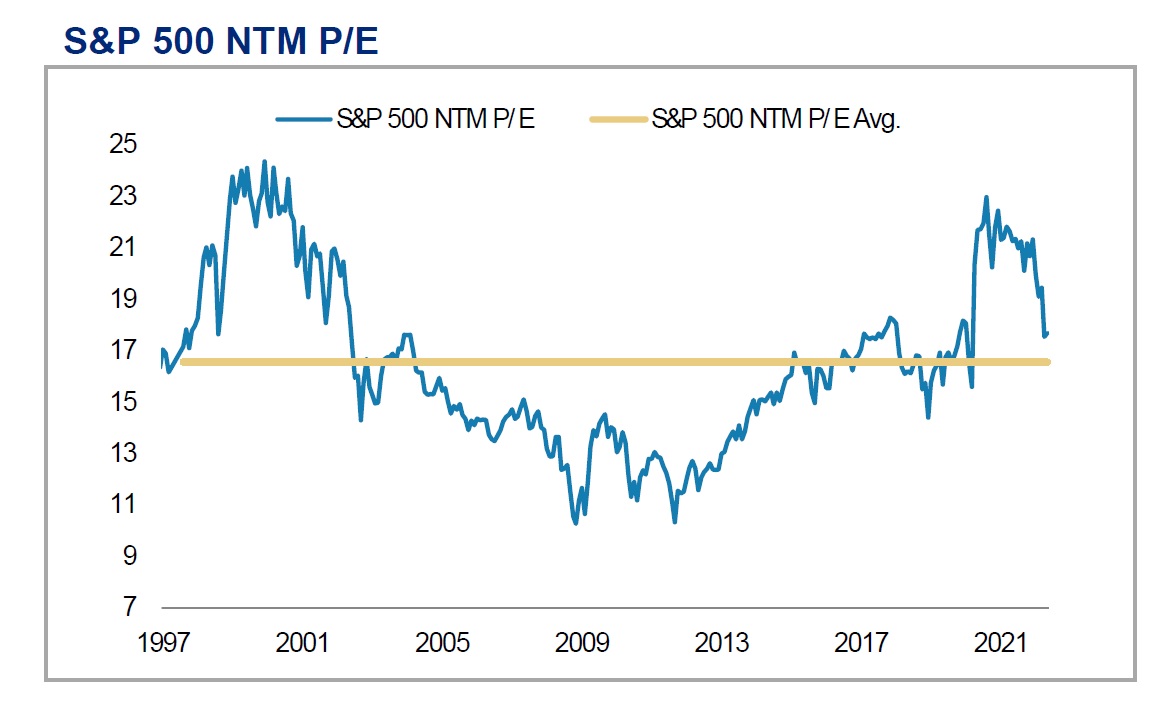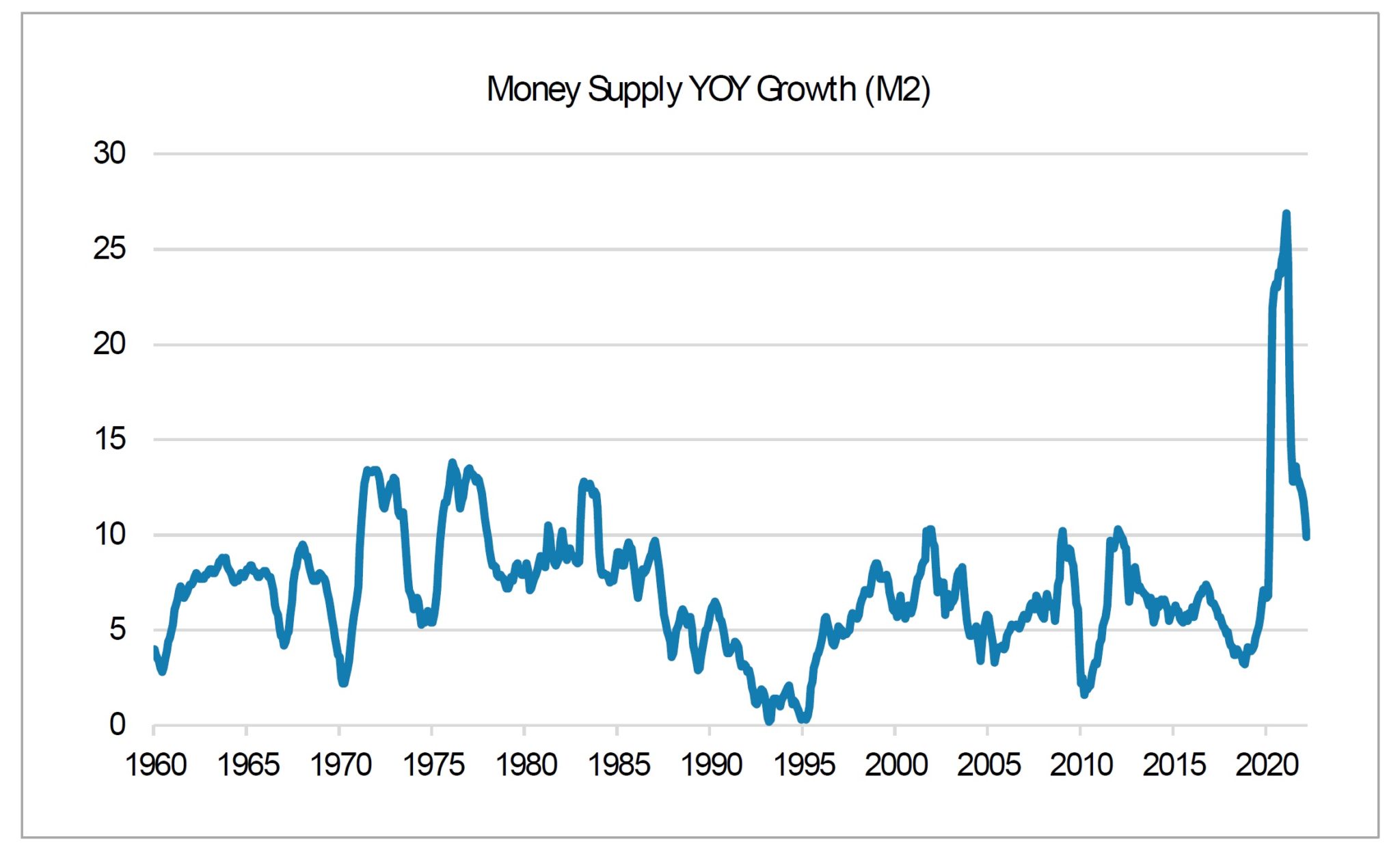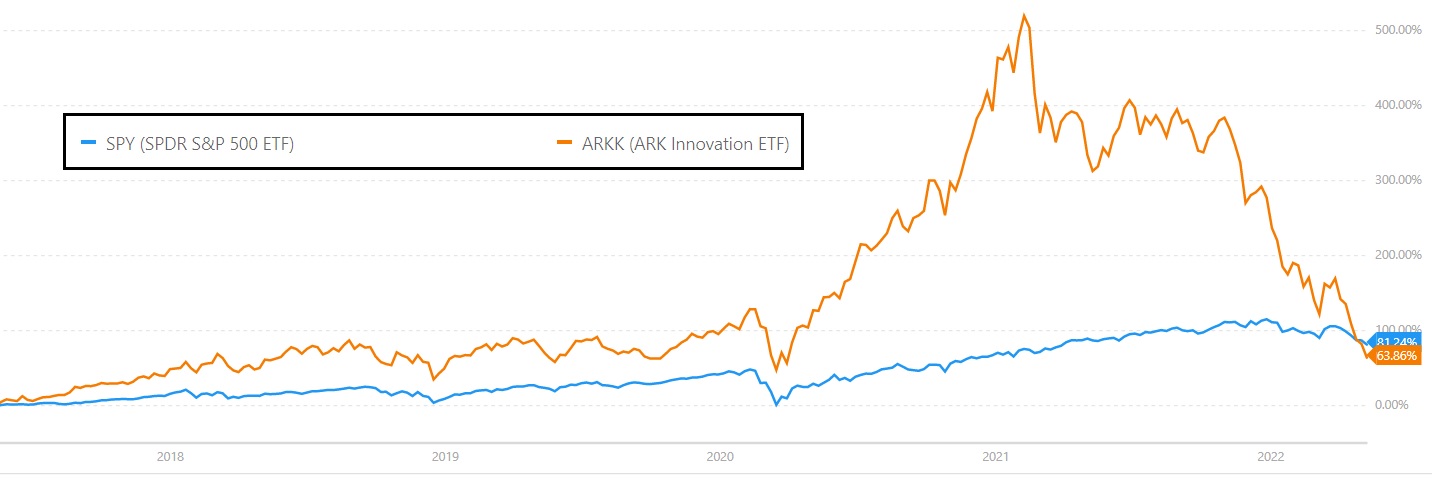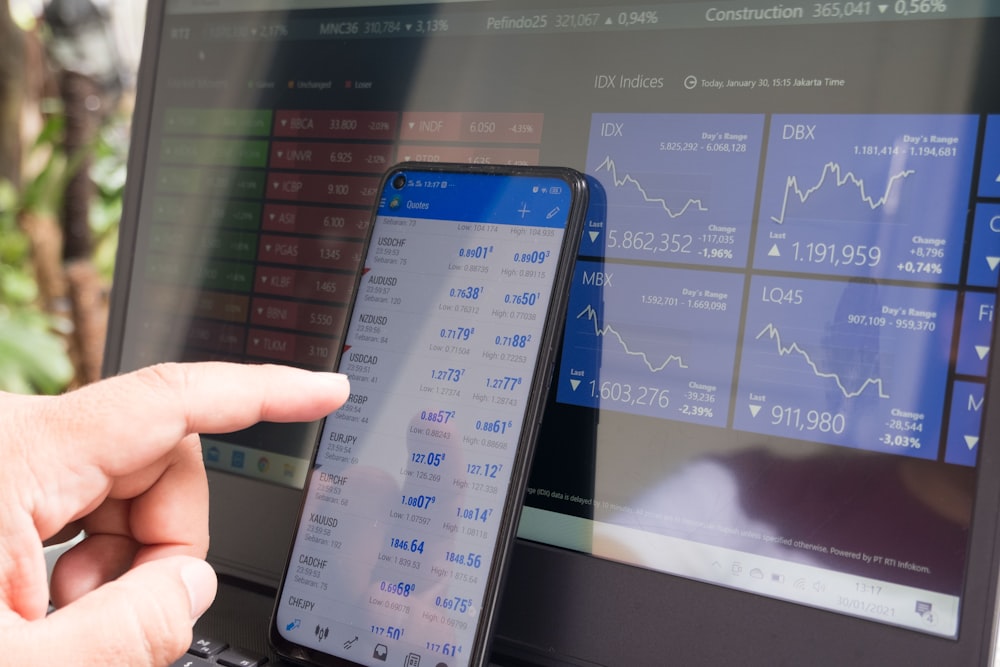Bear Market Playbook: Cash, Patience, And Vigilance
Image Source: Unsplash
It's time for a bear market playbook, one involving cash, some patience, and a helping of vigilance for the coming opportunities, suggests Monty Guild, money manager and editor of Guild Investment Market's Market Commentary.
The damage done to stocks is more evident internally than externally. On the surface, the correction has only started getting to the broad indices. Under the hood, the damage is deeper: 70% of S&P 500 stocks and 85% of Nasdaq stocks are below their 200-day moving averages. A lot of pain has already happened.
There are some external factors at work here, and these may be ushering in some structural changes to global finance and economics.But still, what is happening right now is altogether simpler, and in a way, that’s comforting.
The Fed is raising rates and reducing liquidity by allowing assets on its balance sheet to roll off. Interest rates — the “cost of money” — are the fundamental market-wide variable governing how much investors are willing to pay for a company on the basis of its earnings (that is, the P/E ratio, or price-to-earnings multiple).
As interest rates rise, that number, for the stock market taken as a whole, will fall. We believe it will fall back towards historical norms, indeed, it already is doing so. Layer in the anticipation of decelerating earnings or a potential recession, and the price contraction is even sharper.

The central message to investors is this: what is happening is not outlandish; it is normal and expected. Indeed, it is actually creating opportunities to buy high-quality assets when their prices have declined to sane levels in accord with historical norms and prevailing industry conditions. Many high-quality assets will see their prices decline below those sane levels, presenting particularly appealing opportunities.
What’s happening is simply the result of a hangover. Extraordinary monetary policy made the financial system flush with liquidity, which was used to bid up stock prices — and in the last stages of this process, all sense of proportion, caution, and historical norms was cast aside.

Source: Morgan Stanley Research
Now the punch bowl is being taken away from the party, sirens can be heard faintly in the background, and sobriety is beginning to set in. Note the word beginning. Our firm has an institutional memory of the inflation-driven bear market of the 1970's.
We believe that a market-level bottom still needs to be found — simply because more pain remains to be inflicted on some industries by rising rates if the Fed is even going to approach making good on its stated intention to deal with inflation. And while inflation is likely peaking now, we believe, as we have said for some time, that it will not return to the pre-pandemic 1%-2% norm for many years.
A Bear-Market Strategy
Patience is the watch-word. The P/E chart above shows the extent to which valuations have already declined. However, it’s important to bear in mind that this is a market-wide chart, concealing wide variation among industries and individual companies about what constitutes an attractive valuation.
The sharp decline in market-level valuations points out a notable characteristic of contemporary markets: the prominence of passive investing, which now comprises most of market flows, means that in a period of liquidation such as we are now experiencing, good companies will get sold off indiscriminately with bad.
After the dust settles, Mr. Market will get sober and realize that certain companies were pushed down with the broad market to valuation levels too low for their fundamentals. Our job is to find these opportunities before Mr. Market’s moment of sobriety, and we are already identifying them.
Innovation and Mean-Reversion
The current swoon may be setting up a once-in-a-decade opportunity. We have seen this movie before, and it is not fun to watch — but value is being created. We do not favor moving portfolios totally to cash, because we believe that there will still be tactical opportunities and worthwhile long-term defensible holds even in the midst of a general liquidation. Further, in an inflationary environment, holding cash is in itself risky and costly.
Reversion to the mean is a reality. We mean no disrespect to ARK Invest and its management when we point out that on a five-year basis, the performance of the ARK Innovation Fund, a flagship of the most prominent tech innovators and disruptors, has now fallen below the S&P 500.

Source: Morgan Stanley Research
That chart is itself a perfect visual representation of mean reversion. However, it’s important to remember that the market is not the economy; and the economy is not the current stage of the economic cycle.
Just as in the Dot Com bust — perhaps even more so — among the present-day stock-market wreckage of decimated innovators, there remain companies that are at the forefront of the technological transformation of the world through networking, digitization, automation, and artificial intelligence.
Many of these are components of ARK’s funds, and will become new Amazons and Googles in their respective industries — but not before they’ve endured more exile in the wilderness.
As a quick note on crypto, we have watched the implosion of LUNA and UST with interest. To us, the takeaway is simple: the wild west days of crypto are ending, and the regulators are coming. As we have said for years, we believe this is a good thing. Regulators aren’t perfect, but they are necessary, and financial history shows the disasters that can unfold in their absence.
Investment implications
Multiple contraction alone on the basis of rising rates suggests a 3800 target for the S&P 500. However, should earnings disappoint, or more signs of recession appear, a deeper market-wide decline would likely be in the cards. It is not yet time to sound the “all clear.”
We could have a choppy or lower market with some rallies and declines until later this year, when the market has had a chance to see how much corporate profits will be impacted by the ongoing inflation, and which industries will be hurt and helped by inflation. It will gradually become clear whether we’re entering a multi-year bear market, or simply enduring a deep correction within the market’s many-decade upward trajectory.
The reason you have to maintain some optimism is that the movement of fear and negative sentiment from high to neutral can see markets rally a lot, long before sentiment is actually bullish. On the positive side, as we have noted, some real bargains are starting to appear and we are refining our buy list of companies we believe have strong long-term prospects.
However, the coming bull market, when it emerges, is unlikely to be a QE-driven bull market like what prevailed from 2009 to 2021. Because it will be based more on economic, revenue, and earnings growth, it will be choppier, more volatile, and more company-, sector-, and industry-specific than the previous bull market.
We believe elements of the commodity complex, such as food and battery minerals, will be attractive. Future growth areas — all under the rubric of “growth at a reasonable price” — will include software, disruptive technologies, semiconductors, fintech and defi, and cybersecurity, among others.
When investing in innovation, focus on influential, substantive innovations — innovations that most deeply affect standards of living, and are important to further real-world technological and economic progress. In short, not mere novelty items; this is where patience might be required.
Moving forward, strong margins and balance sheets are likely to draw more attention than they did in an era where investors focused somewhat myopically on revenue growth.
We believe high inflation in food, clothing, shelter, fuel, and other consumer necessities, combined with wages not keeping pace with inflation, will weaken discretionary consumer spending. Supply chains will remain a point of difficulty and concern, and the process of reshoring and transitioning will continue for years.
Disclaimer: © 2022 MoneyShow.com, LLC. All Rights Reserved.




